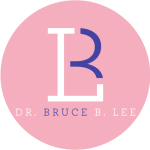
There are many references online stating that a cause of fibroids is having “too much estrogen”. There are also statements that estrogen causes fibroid symptoms to worsen and makes fibroids grow.
Therefore, it is good to give progestins (progesterone is a type of progestin) since they have anti-estrogen effects. This is not only false, but potentially harmful.
If one grows fibroid cells in the lab, then exposes them to only progestin (ie, no estrogen), the fibroid cells grow. Progestins have repeatedly been shown to increase fibroid growth. Ironically, they can also decrease the heavy menstrual bleeding caused by fibroids by limiting the growth of the uterine lining (endometrium).
However, prolonged usage of progestins is highly likely to increase the growth of fibroids even though they minimize the heavy menstrual bleeding that fibroids tend to cause. In other words, progestins are the primary stimulus for fibroid growth.
If one grows fibroid cells in the lab, then exposes them to only estrogen, the fibroid cells will not grow. That is because estrogen acts to increase the effect of progestin upon fibroid growth. Without the presence of progestin, fibroids do not grow. That is why fibroids tend to shrink when estrogen levels are lower (as in the menopause).
If one gives both progestin and estrogen to fibroids they will grown. Estrogen tends to increase the growth stimulation of progestin. In the normal menstrual cycle, both progesterone and estradiol are produced therefore together they increase fibroid growth.
This explains why anti-progestin agents (drugs that block the effect of progestins) have shown promise for short-term (3 month) treatment of fibroids. Long-term usage of these agents is not recommended due to concern about possible cancer stimulation. Also, the U.S. FDA (Food and Drug Administration) has not approved the usage of these agents to treat fibroids.
The post Estrogen and Fibroids – You Will Be Surprised appeared first on Dr. Bruce B. Lee.
